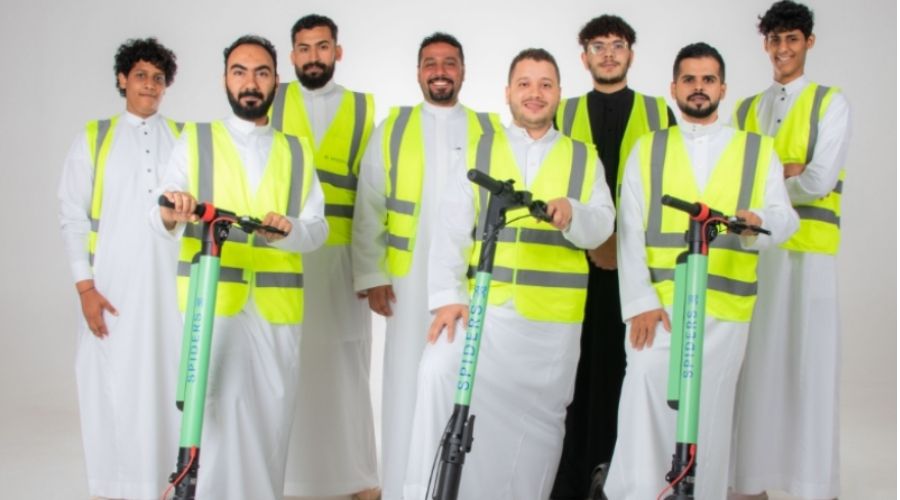Micromobility startup SPIDERS raises $1.4 million

- Saudi Arabia-based micromobility startup SPIDERS, has raised a $1.4 million pre-Seed round led by Watheeq Capital.
- Founded in 2021 by Majd Baik, Sultan Aswani, and Abdullah al Shareef, SPIDERS allows its users to rent bikes and electric scooters in more than 16 locations across Jeddah and Riyadh.
- The newly-acquired funds will enable the company to increase its fleet of electric vehicles.
Press release
SPIDERS, a Saudi micro-mobility rentals company has closed a $1.4M pre-seed investment round led by Watheeq Capital.
SPIDERS was founded by Engineer Majd Baik, Sultan Aswani, and Abdullah al Shareef in early 2021. The company has been able to expand in vital areas in Jeddah and Riyadh cities in more than 16 different locations serving thousands of rides. SPIDERS is on a mission to enable people to move around in an easy, affordable, and eco-friendly way. This mission comes in line with one of the objectives of the Kingdom’s Vision 2030 in both the Quality-of-Life Program and the transportation mandates.
There is a challenge of traffic overcrowding in Saudi Arabia with more than 400,000 cars being imported annually. This huge number poses a challenge to the infrastructure that needs to accommodate the rising number of cars. Micro-mobility can help in dealing with congestion, knowing that 60% of car trips are less than 8 kilometers in major cities according to a study by McKinsey, which applies to a great extent to Saudi Arabia’s major cities that are home to millions of people living and working in them. SPIDERS provides shared electric micro-mobility services that allow people to rent vehicles via Android and iOS applications. These vehicles are powered by electric batteries, getting users to a maximum speed of 20-25km/h. To use the service, users need to locate a nearby scooter, use a QR code to unlock the scooter, then head to their destination. There is an activation fee to unlock SPIDERS’ Scooter of SAR 1 per minute with no registration fees. The company comes with an innovative approach that the public can use and park the scooters in any location.
SPIDERS founder and CEO, Majd Baik, said, "our company was created to support Saudi Arabia’s Vision 2030 in many sectors and projects, including transportation, Quality-of-Life Program, and the Green Saudi Initiative by providing micro electric vehicles that reduce carbon emissions.”
He expressed his happiness with their partnership with Watheeq Capital, and said that the company will use its funding to scale the number of its vehicles and improve service all over the kingdom: “in Europe, US, and China there are companies like us who have raised massive amounts of venture capital, and some of them already got listed in the Stock market exceeding the valuation of billions of dollars in less than 2 years. We think that we have the know-how and the right tools to get the app right, and to provide products that work for the Saudi market and MENA region in later stages. We believe that we are capable of making SPIDERS the leading micro-mobility company in the MENA Region”
Khaled Zaidan, head of alternative investments at Watheeq Capital said: “There is a broad competitive advantage in the scooter business, however, none of the current companies has a patent. It’s all about the execution, and that is what we saw in SPIDERS’ Team. We are excited and deeply encouraged by their performance and we are looking to help them in building their position as the number one micro-mobility company in MENA and accelerate their success in this competitive industry.”
Zaidan continued to say that micro-mobility will be a very popular means of transportation in the future as 60% of the Saudi population are millennials who start to see transportation as more about getting from A to B, and less about car ownership like earlier generations. The Kingdom’s 2030 vision mega projects such as The Line, Oxagon, Al Qidiya, as well as the plan to double Riyadh residents from 7.5M to 20M are expected to take micro-mobility a necessity which will put into consideration creating a suitable infrastructure, and providing the necessary means.”


